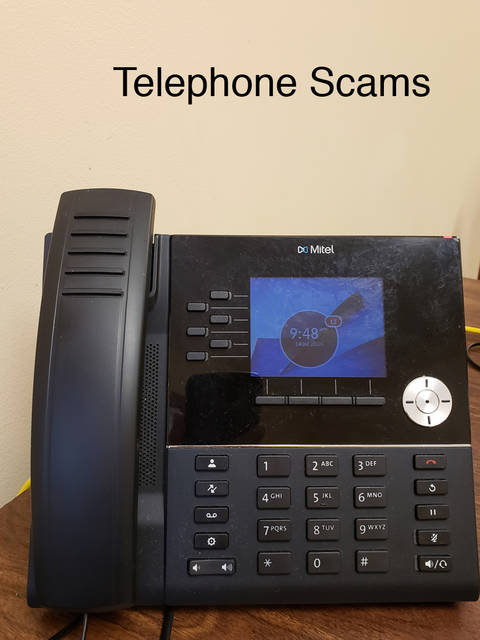Scammers are hard at work trying to fool utility customers.
There are currently three separate phone scams that are targeting electricity and gas customers.
Lee Freedman with Duke Energy explained how the scams work and what customers can do to prevent being taken advantage of.
Scam 1: Pay or be disconnected
“Phone scammers posing as utility representatives are calling residential and business customers and insisting they are delinquent on their bills,” Freedman said.
“These are usually very sophisticated operations. For instance, sometimes the scammer rigs the caller ID so it appears the call is coming from the local utility.”
Freedman said that the scammer typically claims a disconnection is pending, says a technician is on standby to disconnect power within 30 minutes and demands the money in the form of a prepaid debit card, money order or wire transfer.
The targeted customer is usually instructed to visit a store to purchase a prepaid debit card and then call the provided phone number with the card number.
“When the customer calls the phone number to pay with the prepaid debit card, they usually experience a professional-sounding interactive voice response menu that closely mimics what they hear when they typically call their utility,” Freedman said.
“Once they speak to a live person, the imposter usually asks for the prepaid card’s number, receipt number and PIN. All of these gives the scammer instant access to the card’s funds.”
Duke Energy has temporarily suspended disconnections for nonpayment due to the Coronavirus pandemic, but he said the scammers have an answer for that too.
“The scammers must be hearing from customers that we’re not disconnecting customers right now – because we’ve heard that they are telling customers if the pending disconnection is an error, the customers will receive refunds in 24-48 hours. This is obviously meant to give customers peace of mind – and make them feel more comfortable providing the prepaid debit card info. Customers should never pay over the phone if immediate payment is demanded by a prepaid card to avoid a disconnection,” Freedman said.
Scam 2: Utility discounts
Utility customers in Ohio can choose who supplies their electricity through the Energy Choice Ohio program.
Supply charges make up about half of an electric bill, with the rest coming from delivery charges.
About half of Duke customers choose a third party source for electricity supply.
“Some of these companies use misleading, sometimes illegal, tactics to sign customers up for their energy supply plans,” said Freedman.
“Here are transcripts of two unsolicited calls I received personally:
• ‘This is Mrs. Peterson. I’m trying to reach you regarding an important matter about the supply charges on your Duke electric account. Please return my call and have a copy of the electric statement handy to review.’
• ‘Hello. This is Sally calling to follow up about a notice on your Duke utility account. Please call me back immediately with a recent statement received by mail.’”
Freedman said that these companies need information like name, address and Duke Energy account number to sign up customers for their service.
“All Duke Energy Ohio customers can visit energychoice.ohio.gov to shop for an energy supplier just as they shop for other products and services. The Energy Choice Ohio website, which is a service of the (Ohio Public Utilities Commission) lists dozens of third-party energy companies and a variety of offers for both electric and natural gas supply.”
Scam 3: An apology call from your electric utility
“Residential customers are receiving calls and, upon answering, hear a recording that says they’re entitled to a refund and/or discount on their electric bill due to the utility over-billing them. Some of the recordings say the utility is issuing refunds due to the pandemic,” Freedman said.
“Regardless, customers are then asked to press 1 to speak to a representative, who then gets more information from them. Based on our reports, the scammer may already have some basic, publicly-available info on the customer, like his/her name. The scammer then asks for more personal identifiable information (PII) like street address, utility account number, etc.”
Freedman said that these scammers will sometimes have personal identifier information such as names or addresses to appear legitimate.
Once any personal information is revealed to the scammers, the victim is vulnerable to identity theft or having their bank account accessed.
“Customers who receive calls from someone claiming to be working with Duke Energy should not provide any personal identifiable information,” Freedman said.
“If a customer suspects a scam, they should hang up, call the police and call Duke Energy at the number listed on their monthly bill or Duke Energy website, Freedman said.




